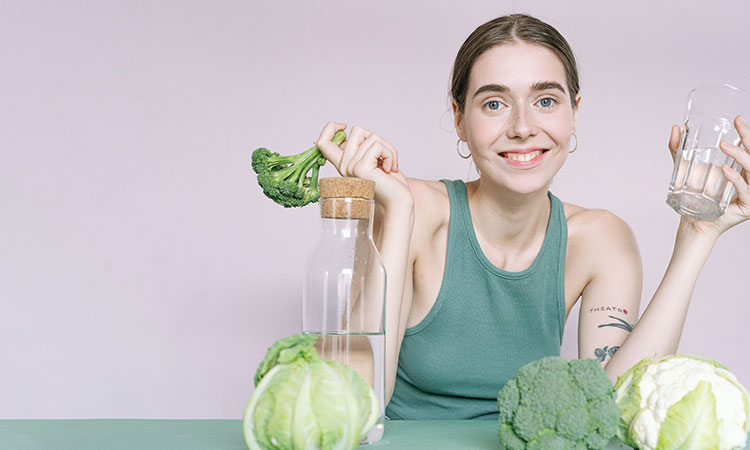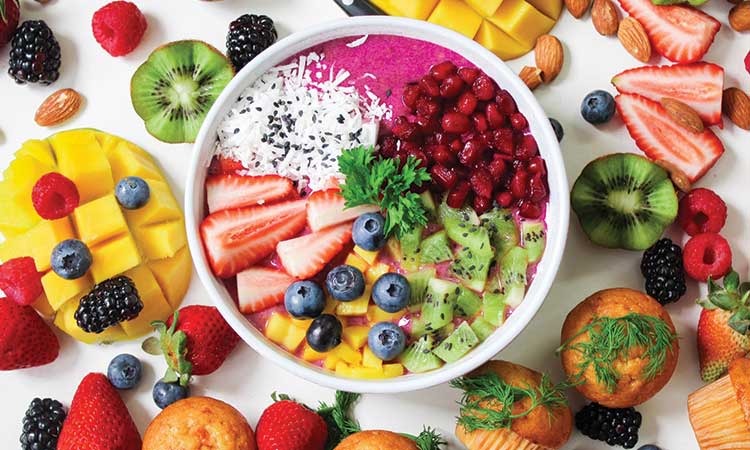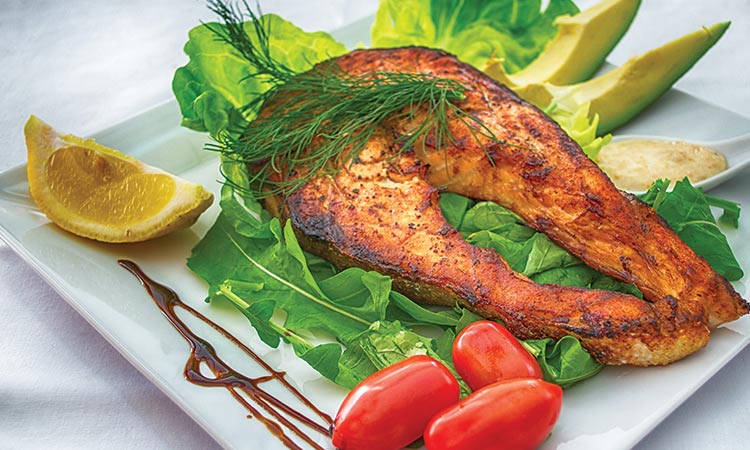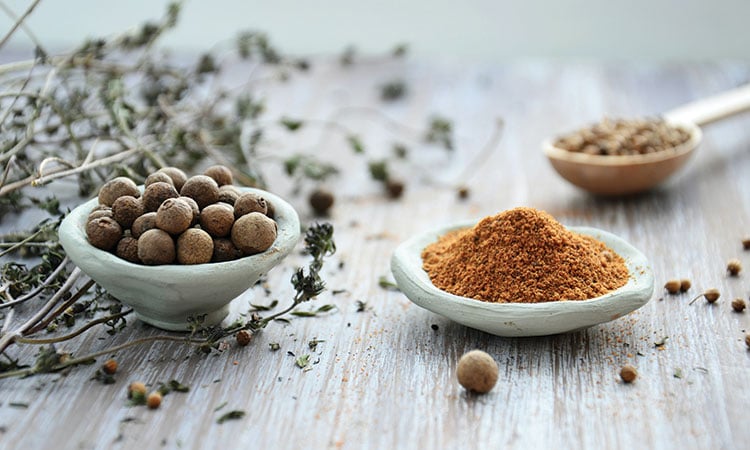Understanding what foods to avoid while breastfeeding is equally important as understanding the food you should include in your diet during breastfeeding. Just like you had some foods off-limits during your pregnancy, you will have some foods that are not recommended when breastfeeding.
What Are The Foods To Avoid While Breastfeeding?
Just like a pregnancy diet, sticking to a healthy diet and regular meal is important while breastfeeding. A healthy, nutritious diet will influence the quantity and quality of breast milk. A nursing mother should eat nutritious food, including galactagogues that help to produce better breastmilk.
The composition of breast milk is regulated by your body. Milk is produced by mammary glands.The cells that produce milk determine its quality. However, studies show that what you eat influence the contents, and sometimes, even the taste and smell of breast milk.

Babies do react to certain food their mothers eat during breastfeeding. However, not all babies react the same way to the same food. Still, there are certain foods and beverages that you have to steer clear of while breastfeeding. And that’s why it becomes important to know what foods to avoid during breastfeeding.
Here is a list of food to limit or avoid while breastfeeding and its effect on the baby.
Vegetables To Avoid During Breastfeeding
Among the foods to avoid during breastfeeding, vegetables may take you by surprise. Vegetables are highly nutritious and loaded with minerals and vitamins. However, according to studies if breastfeeding mothers eat certain vegetables, especially cruciferous vegetables, they can trigger colic in babies.Find out some vegetable to avoid or limit while breastfeeding.
1. Raw cabbage

Raw cabbage is a colic-inducing food. Maternal cabbage can cause colic in breastfed infants. However, there will be no issue if you regulate its intake.
Therefore, instead of evicting cabbage from your diet, take it moderately now and then. Also, avoid the intake of raw cabbage as in a salad. Well-cooked cabbage reduces the chances of colic in babies.
2. Cauliflower
Cauliflower has many benefits as it is rich in antioxidants and fibre. However, breastfeeding mothers should limit the intake of cauliflower as it is a colic inducing food. Too much cauliflower in your diet can upset baby.
3. Broccoli
Doctors suggest taking out broccoli from your breastfeeding diet. This is mainly due to two reasons. Broccoli takes time to digest and can cause gas issues for mother and can induce colic in babies.
Another reason is that the strong flavour of broccoli may get into the breast milk. Therefore, if you notice baby is not interested in breastfeeding after you had a bowl of broccoli soup, or if the baby becomes colicky every time you feed him after eating broccoli, avoid broccoli for the time being.
4. Onions
Onions have many health benefits. And though onions are very common in Indian households, it is also one of the foods to avoid during breastfeeding. Too much consumption of onion increases the risk of heartburn significantly in lactating mothers.
Carbohydrates present in onions can induce bloating issue in breastfeeding mothers. Therefore, minimize the onion consumption during breastfeeding.
5. Tomatoes

Tomatoes are acidic food that can be problematic for breastfeeding babies. Lycopene is a carotenoid present in tomatoes. It can get into the breast milk and can cause trouble to the breastfed baby.
Fresh tomatoes may not cause much issue. However, it is always better to stay away from or reduce the ingestion of tomatoes and tomato-based recipes while breastfeeding to reduce the risk ofacid reflux in babies.
Fruits To Avoid During Breastfeeding
While nutritionists around the world would agree that breastfeeding mothers can continue to eat what they normally eat, it is in the best interest of everyone to see how babies respond to certain foods. Food can significantly affect the taste of breast milk and also change the composition, so do keep a tab. Here are some fruits that do not go well with breastfeeding babies.
1. Citrus fruits
Citrus fruits top the list of fruits to avoid during breastfeeding. Many researches and studies support this. Citrus fruits are refreshing and amazingly tasty but when consumed by lactating mother, they can impart an acidic flavour to your breast milk.
Some babies hate the taste of breast milk when the acid in citrus fruit gets into the breast milk. The acid component in citrus fruits or juice can also irritate the gastrointestinal tract of a baby. They might get fussy or even vomit if they had to have it.
Drinking too much citrus juice by nursing mother can bring about diaper rashes in the breastfed baby.
Citrus fruits include lime, grapefruits, kiwi, pomelos, strawberries, Tangerines pineapples, lemon, oranges, and grapes.
2. Strawberries
Strawberries fall into the highly allergenic category of food. The allergenic components of strawberry can get into breast milk. In case there is a family history of strawberry allergy breastfeeding baby soon after eating strawberries can increase the chances of allergic reaction in the baby.
3. Prunes and cherries

Both prunes and cherries are well known for their laxative properties. The ingredients that make these fruits natural laxative can find its way to breast milk. Eating too many cherries and prunes can triggerloose motion in babies.
Seafood To Avoid During Breastfeeding

Mercury is a heavy metal, and due to water pollution, a substantial amount of it is washed into the sea. Most of the sea animals absorb a small quantity of mercury. Studies show adverse affects on babys’ health if breastfeeding mothers eat seafood loaded with mercury.
As time passes, an organic form of mercury- methyl mercury — starts to concentrate in some sea animals. In some fish, mercury can accumulate and quickly rise to dangerous levels. When a nursing woman eats these fish, it will get into her breast milk.
Mercury cannegativelyaffect the development of the central nervous system of the child.it can affectthe nerve-coordination, bring about attention disorder, and issues with memory.
Therefore, stay away from seafood with high mercury levels during breastfeeding. These include shark, big eye tuna, king mackerel, tilefish, marlin, orange roughy, swordfish,and white tuna.
Seafood is an important source of DHA and Omega-3 fatty acids. So, you don’t have to banish seafood altogether from your diet during breastfeeding. You can go for safer seafood options like salmon, clams, catfish, tilapia, shrimps, sardines, crab, and scallops.
Dairy To Avoid During Breastfeeding
Dairy is one of the most common foods that may cause issues for breastfed babies, and is among the foods to avoid during breastfeeding phase. Large protein molecules in cow’s milk can get into your breast milk. The proteins in cow’s milk can create gas issues in babies.
These symptoms could make your baby very irritable or fussy. The symptoms of milk allergy in babies include stomach pain, vomiting, diarrhoea, reflux, colic, hives, and even in bloody poop.
If the baby turns fussy every time after nurse him after having dairy products, and if he develops sleeping issues and skin rashes, then you can doubt your baby is allergic to cow’s milk.
Once you doubt dairy products are causing the issues, try an elimination diet. Stay away from cow’s milk and dairy products for a few weeks. If you see an improvement in your baby, you can confirm your baby has issues digesting the cow’s milk protein.
Proteins from the foods you eat will get into your breast milk within 3-6 hours. Also, it can remain in your breast milk for another one or two weeks. So you have to wait for at least three weeks diary -free to see if the symptoms of the baby are improving.
You don’t have to eliminate dairy from your menu forever. You can try reintroducing it after a month. Even then if the baby starts to show the symptoms, stop having it immediately.
Now, when to reintroduce dairy and dairy products into your diet should be decided by your child’s doctor. Sometimes the doctor asks you to remain dairy-free until you wean your child. Otherwise, the doctor allows the reintroduction of dairy under his direct supervision.
Poultry To Avoid During Breastfeeding
Well cooked chicken,especially, lean chicken is safe to eat during breastfeeding. It is loaded with vitamins and minerals that can improve the quality of breast milk. Lean chicken is easy to digest, as well. However, avoid canned or cold chickens.
Duck meat is rich in iron. Yet, this meat is considered “cool” meat. Therefore limit the duck consumption during breastfeeding as it may lead to digestion issues. The last thing you want during breastfeeding is fighting issues with your digestive system.
Eggs are an excellent source of protein and micronutrients highly beneficial during breastfeeding. However, eat hardboiled eggs when breastfeeding. Stay away from undercooked or raw eggs during breastfeeding as they pose a risk of salmonella contamination leading to food poisoning.
Also, egg protein can get into breast milk. If you eat eggs an in case you find signs of allergic reaction in the baby after breastfeeding him, it could be a sign of egg allergy. The signs of egg allergy include rashes, breathing issues, hives, stomach pain, etc.
Note:When choosing a cooking method, consider roasting or grilling instead of deep frying.
Herbs To Avoid During Breastfeeding

Not all the herbs safe during breastfeeding. While some herbs can get into the breast milk and cause health issues for babies, some herbs are antilactagogues used traditionally to dry up the breast milk during weaning.
Here are some herbs to avoid while breastfeeding. When we say these herbs are not safe, we are talking about excessive intake or everyday intake—adding little herbs occasionally while cooking will not do any harm to you or your baby.
Remember, moderation is the key and your baby’s reaction the deciding factor.
Avoid herbs that affect milk supply. This includes thyme, sage, peppermint, sorrel, parsley, oregano, black walnut, rosemary, sorrel, spearmint, and periwinkle herb.
Avoid herbs that can harm the baby if get into the breast milk. Some of these herbs include ginseng, senna leaf, Indian snakeroot, kava kava, star anise, mate leaves, ephedra, bearberry, and butterbur.
Nuts To Avoid During Breastfeeding
Peanuts and tree nuts are allergenic and can cause undesirable reactions when you are breastfeeding. The components in nuts that trigger allergic reaction can make its way to breast milk, making baby the ultimate consumer. Therefore, if you have a family history of nut allergy, it is better to stay away from it during breastfeeding.
Spices To Avoid During Breastfeeding
Usually, eating spicy food during breastfeeding will not harm the baby. Even if a small quantity of spice findsits way to breast milk, it will not always adversely affect the baby. However, it is always good to limit the intake of spices like cinnamon and chillipepper.
Actually, it is said the baby who drinks the milk of a mother who had a range of food items while nursing shows fewer issues while introducing to a variety of food items as they start their solids. Their taste buds will be ready to explore different tastes.
However, neverlet yourself carry too far with spicy eating. There are a few possible side effects that spicy food could have on your baby. Again,the same spice can bring about different reaction in different babies.
Therefore, we cannot pinpoint a particular spice to avoid during breastfeeding. The key is limiting the spice intake and find out which spice is bothering your baby through trial and error method.
If the baby shows some allergic reaction every time you eat a particular spice, steer clear of it for a week. Then again have it. If the baby still exhibits the same issues, avoid that spice as long as you exclusively breastfeed your baby.
Some spicy food eaten by mothers cantrigger an allergic reaction like rashes and hives in the baby. Some babies develop excessive stomach gas after the mother breastfeed him after a spicy meal.
Sometimes, spicy food while breastfeeding triggers colic in babies. Preventing colic is very important as gassy or colicky babies are cranky babies.
How Do You Know A Breastfed Baby Is Affected By Your Food Choices?
Now that you have a list of foods which may cause your baby to dislike or be fussy about breastfeeding, remember that you do not have to completely avoid them. You need to tune into your baby’s likes and dislikes along with your own taste preferences for an enriching and satisfying breastfeeding experience.
Exposing a baby to different tastes and a variety of foods is the right way to go. Babies, if sensitive to certain foods would develop some tell-tale sign in about 12 to 24 hours of consumption. Here are some signs that your baby is sensitive to certain foods:
- Gas: If baby develops gas after breastfeeding when you have eaten some specific food, it is time to note it down and do a trial again to be sure.
- Colic: A crying, colicky baby can turn your world upside down, and not in a good way. Many times colic is induced by foods that your baby was exposed to when feeding, Check what you had and if there might be a suspected item on the list.
- Crying and trouble sleeping: If your baby cries inconsolably after drinking breast milk every time after drinking your milk and each time if you had something very spicy, then it can be a sign of spice reaction. Some babies also have trouble sleeping.
- Diarrhea and rashes: If the baby develops consistent diarrhea, rashes, hives or refuses to have breast milk mostly after the mother eats something specific and nurses the child, it can be a sign of spice reaction.
- Vomiting, congestion or other symptoms: If a baby shows any symptoms as listed, there is a possibility that you or someone in the family has been allergic to certain foods and that has been passed on to the baby. A food log in this case would be helpful.
Though eliminating a food item that you suspect is causing your baby discomfort is the best way to go about finding whether your baby is sensitive to it, do share your concerns with a pediatrician to be sure.
Happy breastfeeding!
